TH-Köln
Technische Hochschule Köln
Latest activities, news and other downloads from the FEMOZ project
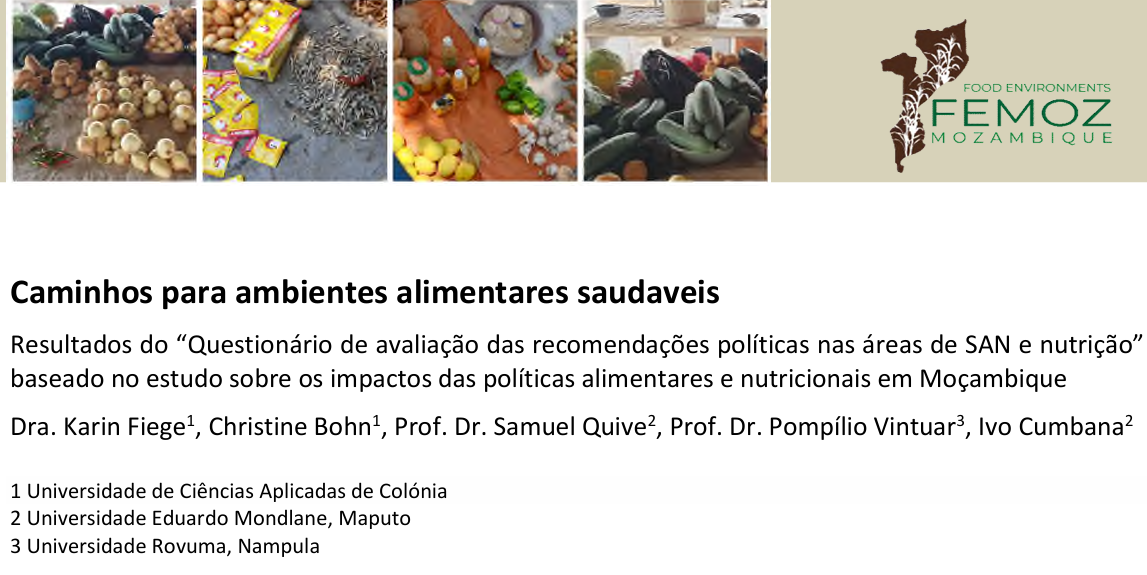

The FEMOZ team prepared an evidence report on the empirical analysis of the Mozambican Food and Nutrition Security (FNS) policy interventions based on the “Healthy Food Environment Policy Index – Food EPI*
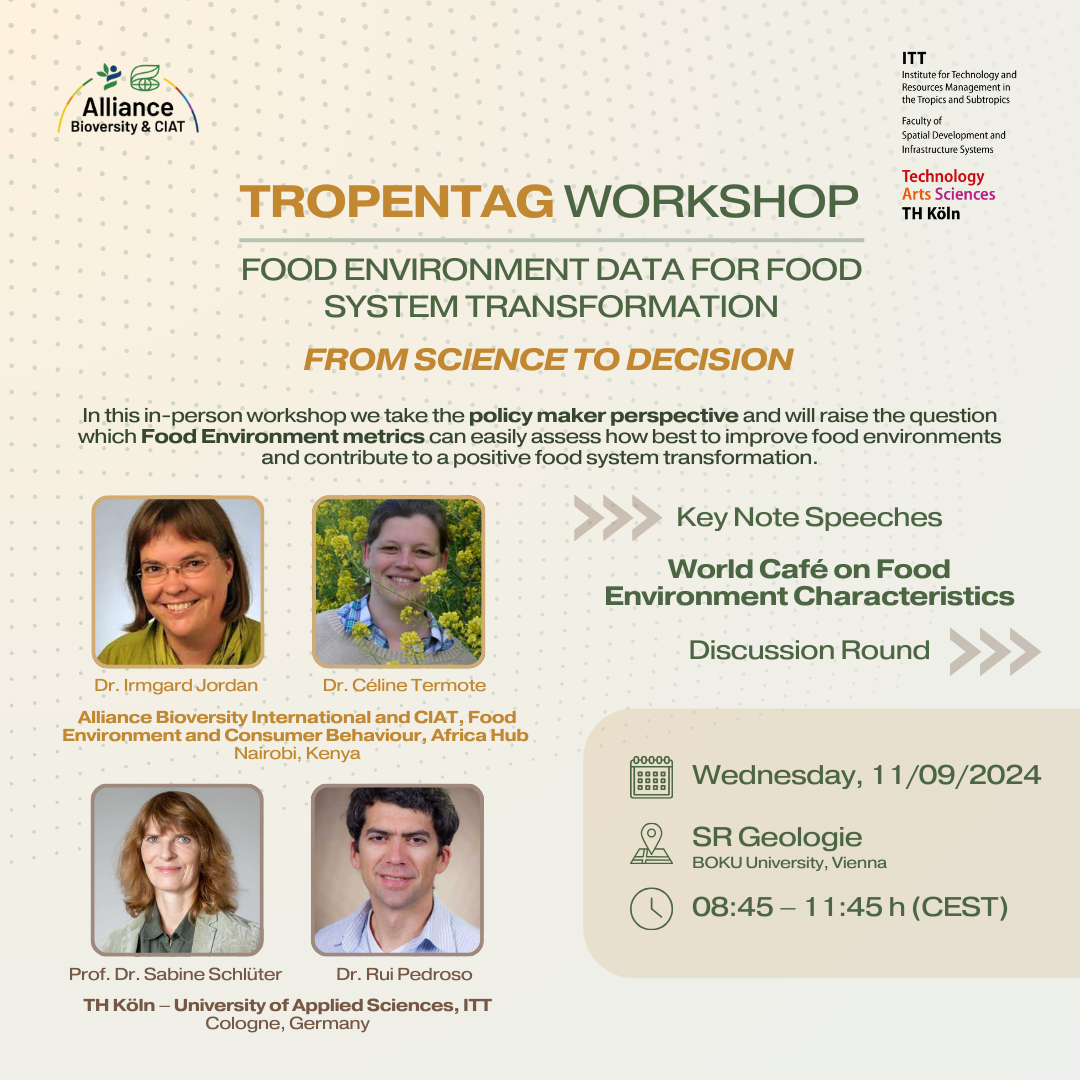
We are proud to co-host a workshop at this year's Tropentag held in Vienna, Austria. This in-person workshop jointly hosted by the Alliance of Bioversity International and CIAT and the ITT (Cologne University of Applied Sciences) aims to inform, discuss and identify potential utilization of food environment data for improving food and nutrition security.
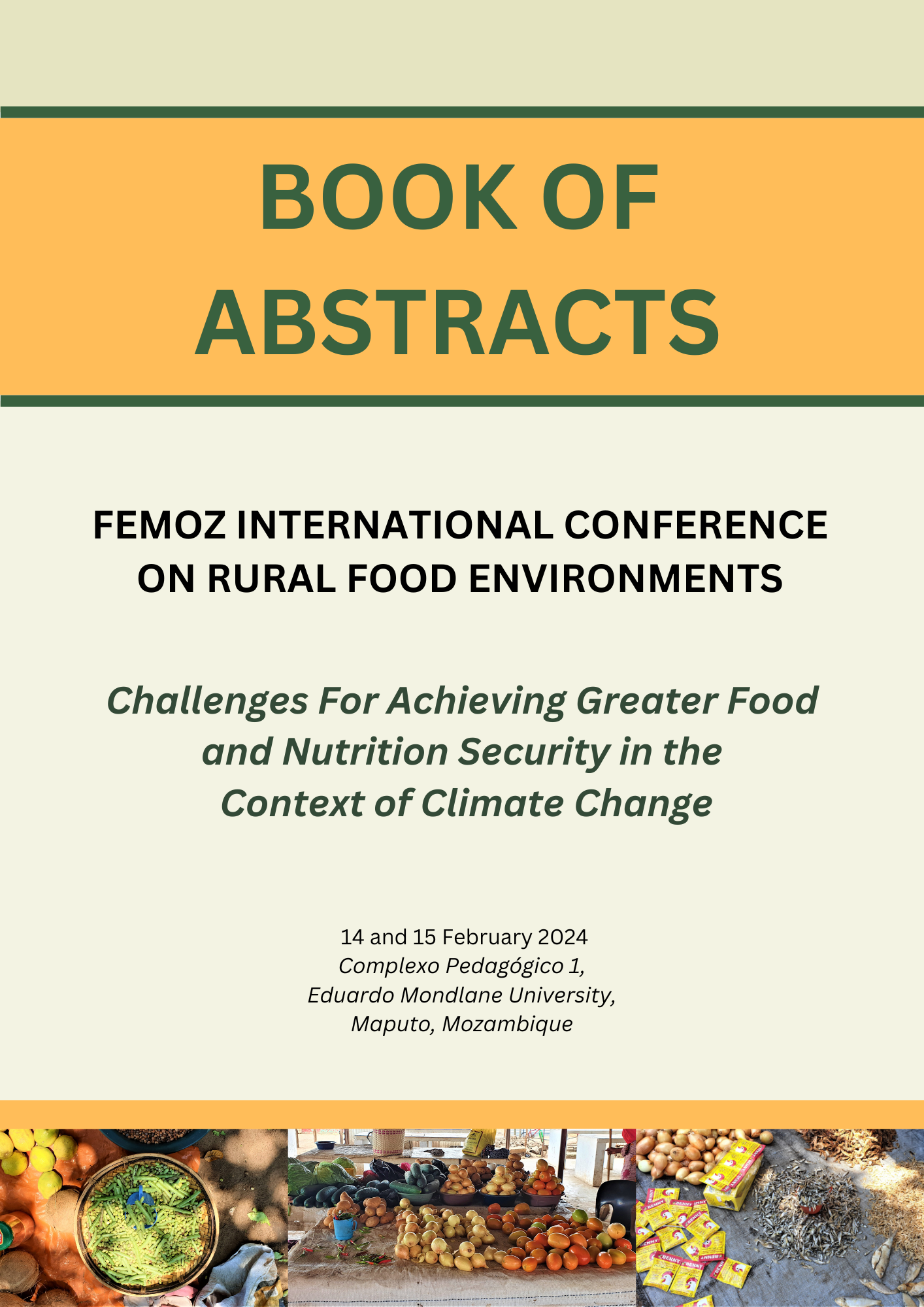
The FEMOZ International Conference on Rural Food Environments held at the Eduardo Mondlane University (UEM) in Maputo, Mozambique in February 2024 brought together experts, academics, students and members of the public.
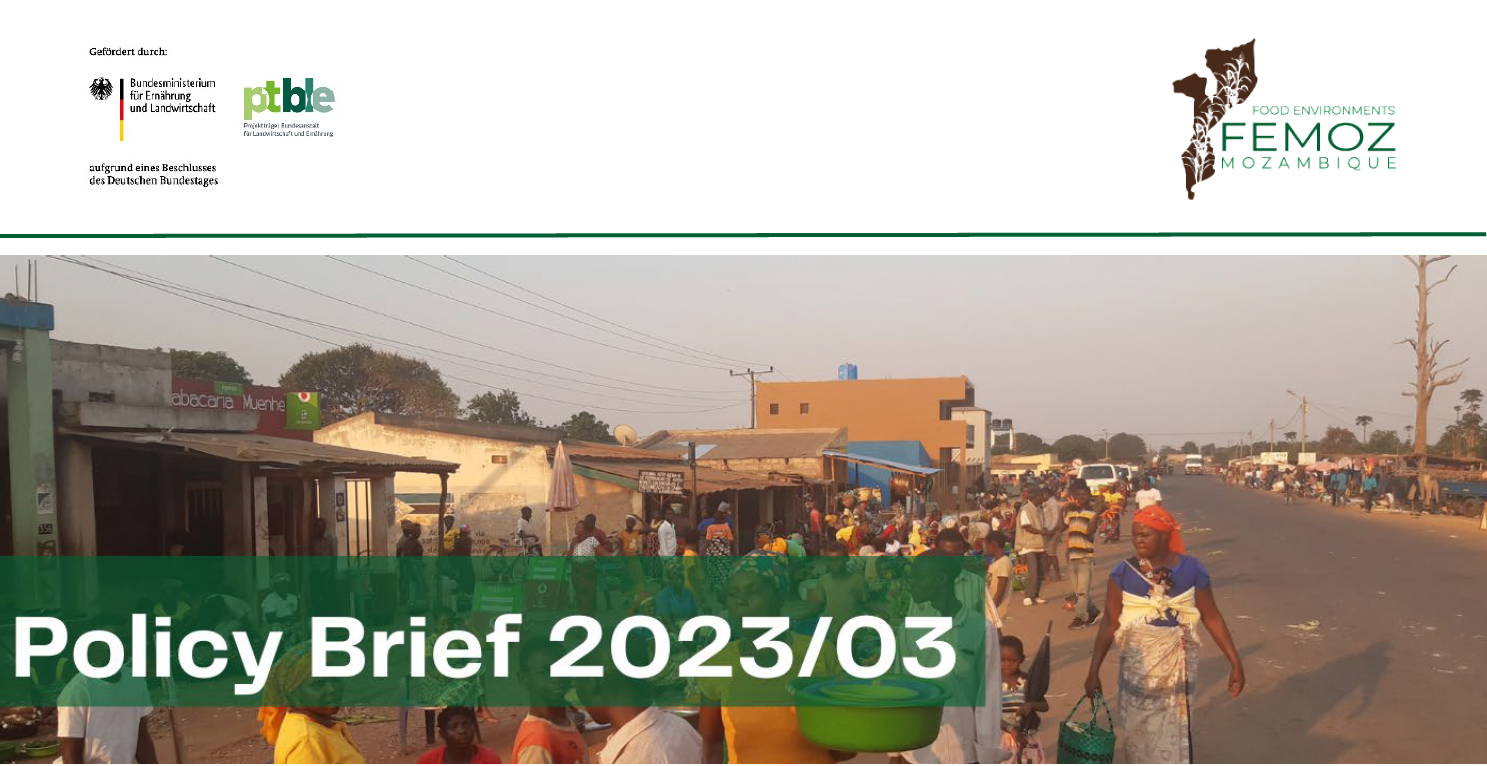
The applied research of the FEMOZ project is intended to support political decision-makers in their strategic discussions. This endeavour is supported by various project measures. An important product for this is the policy briefs, which summarise the most important research results in a concise form and formulate concrete recommendations.
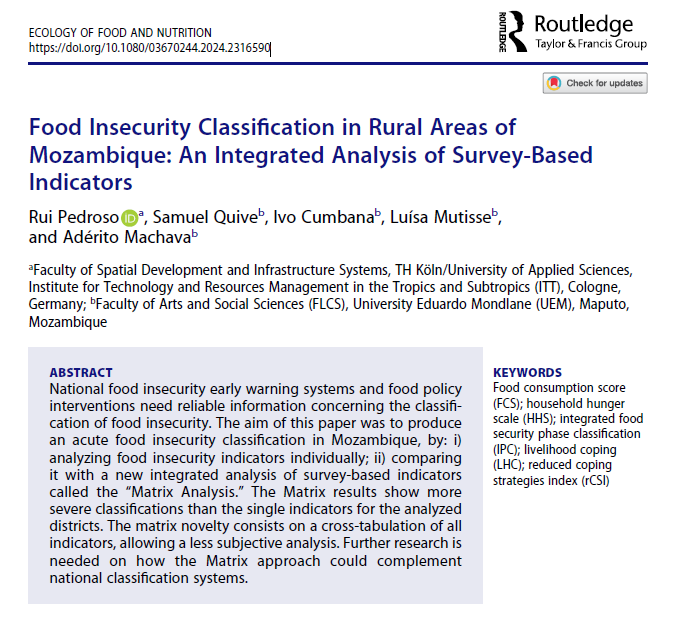
The most recent FEMOZ article has been published recently on the international peer reviewed journal Ecology of Food and Nutrition.
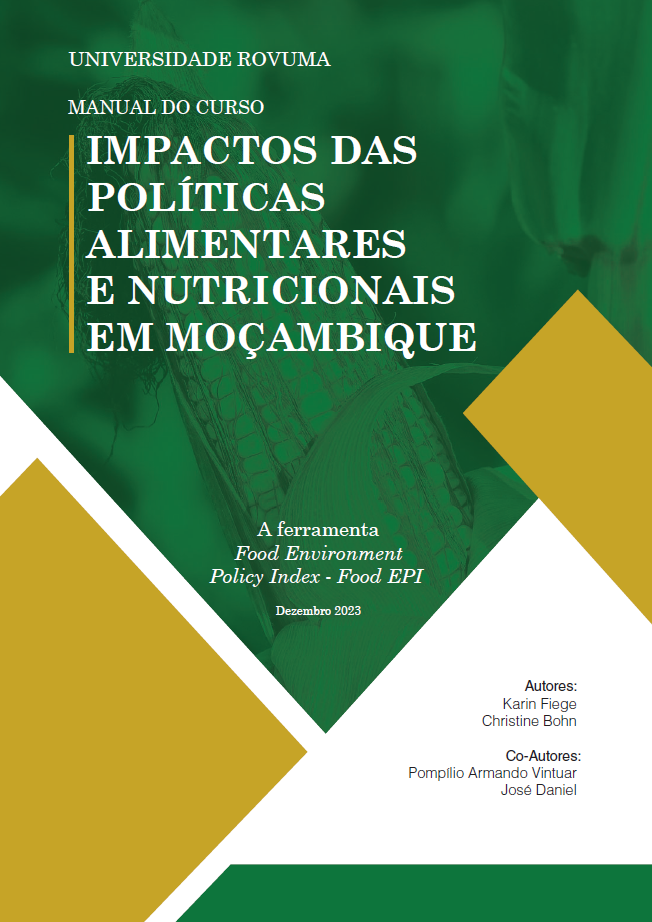
The FEMOZ team analysed the impact of food and nutrition policies in Mozambique based on the Food Environment Policy Index (Food EPI) developed by the INFORMAS network (1), in the Portuguese language. This analysis provided a good overview of the status of implementation of various policies in the area of food and nutrition security (FNS) and enabled the development of policy recommendations.

The FEMOZ project proudly looks back on the recent International Conference on Rural Food Environments. The conference was deemed a great success by the participants with various interesting and discussion sparking presentations and keynote speeches. The conference hosted by the Eduardo Mondlane University in Maputo was attended by national and international scientists, qualified students, and representatives from the Mozambican public sector. The hybrid format allowed a broadened active inclusion of participants from other countries and universities in the north of Mozambique. The excellent simultaneous translation offered a unique opportunity for a lively exchange among Mozambican and international representatives.

Neglected-Underutilized Crop Species (NUCs) are foods that can be eaten, but few people do so because society is unaware of this possibility, which is why they are given this name. They are plants that can be eaten as a whole, or parts of them, and generally belong to the categories of: roots, tubers, bulbs, leaves, flowers or seeds, which are used for consumption purposes, or which, after preparation, are consumable (Terra & Viera, 2019).

In Mozambique several studies were carried out to assess the Food and Nutrition Security (FNS) situation, namely: (i) Demographic and Health Survey (IDS), (ii) Household Budget Survey (IOF), (iii) Multiple Indicator Cluster Survey (MICS), (iv) FNS baseline study, (v) Annual Food and Nutrition Security Assessments. The first four surveys measure Chronic Food and Nutrition Insecurity (Chronic FNSN), while the annual assessments measure Acute Food and Nutrition Insecurity (Acute FNSN) (MASA 2023).